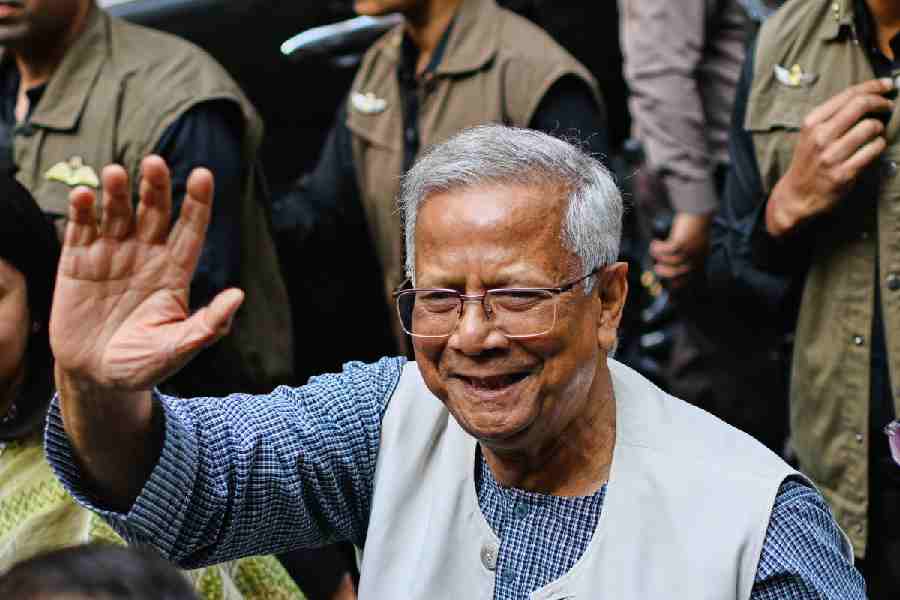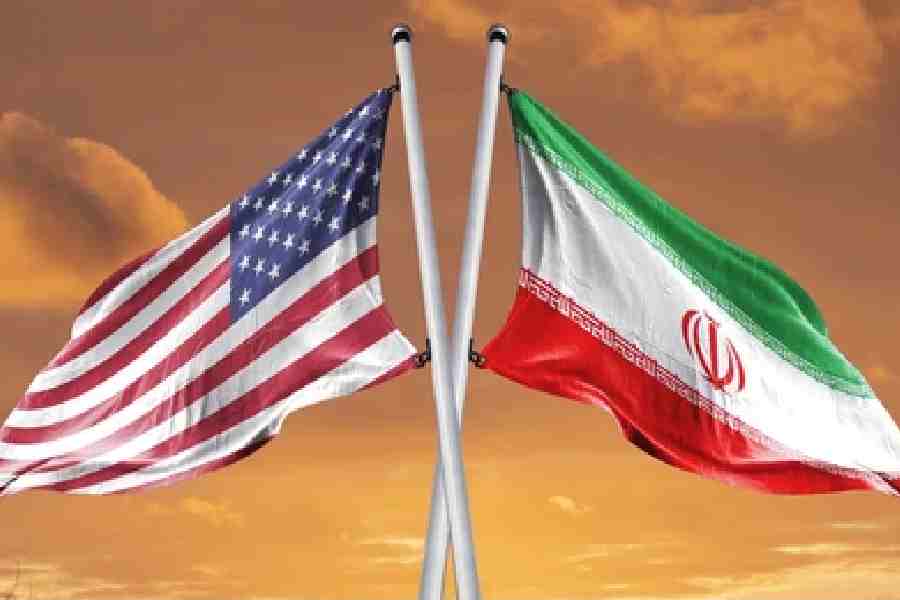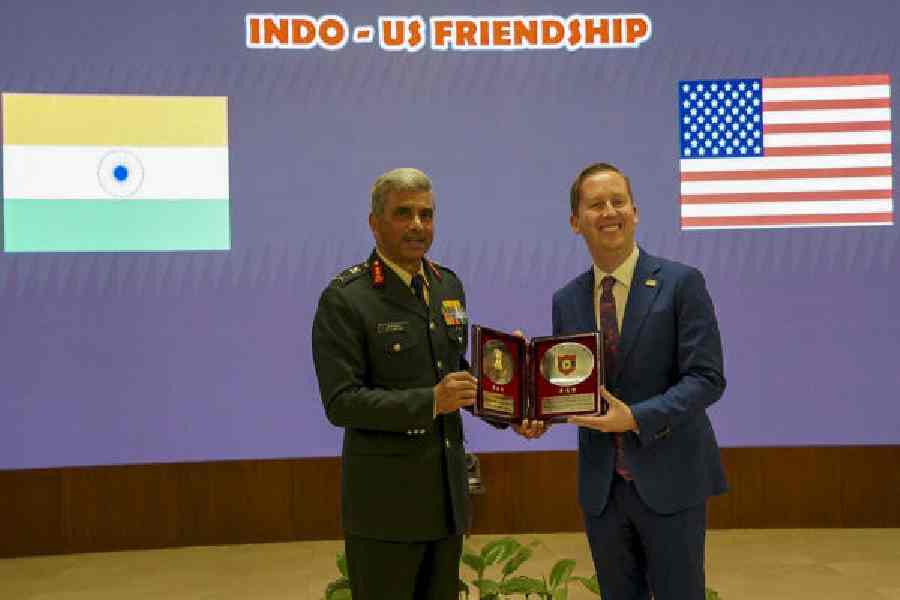 |
Salman Khurshid is not a Mani Shankar Aiyar. Nor is he a Digvijay Singh. Aiyar and Singh are the Congress’s enfants terribles for their constant snipes at senior leaders, including the Prime Minister.
So Khurshid’s comments on the Sachar Committee report at a recent public function in Chennai left some of his colleagues a trifle bewildered. The 2005 report — the first of its kind in Independent India — conclusively established that Muslims in India had been given a raw deal, especially in education and jobs. The document went on to become a cornerstone for the UPA government in its policy formation for minorities.
What then prompted him to say that the Sachar Committee proposals could lead to further ghettoisation of Muslims and should, therefore, be considered critically?
“It is just an honest appraisal,” he replies. “We enthusiastically support the issues raised by Sachar. But there are aspects that are unacceptable as legality and as strategy. Sachar’s underpinning is the principle of equality with integration. But certain aspects lead in a different direction such as raising a separate cadre of officers from the minority communities,” he says.
The new law minister — who says his priority is the aam aadmi or the common man — is also not in favour of the committee’s proposal for enacting an all India Special Powers Act for the Waqf Board, which deals with Islamic religious property. “When there are Hindu trusts, how can you make an exception for the minorities? This leads to ghettoisation. Muslim groups protesting my statement did not look at the national picture. As a government we have to look at it because we cannot have separate enclaves for Muslims,” he explains.
So while Khurshid, 58, applauds Sachar’s “vision and perspective”, he adds that he wants the recommendations to be endorsed as much by Hindus as Muslims. While no self-professed Hindu outfit has praised it so far, the minister says he was gratified that two days after his Chennai statements, which raised the hackles of Muslim representatives, one important person revisited his view. He was economist Abusaleh Sharif who worked from behind the scenes on the Sachar Commission and eventually wrote the report.
“He and I may be accidentally on the same side,” says a beaming Khurshid. If there is a divergence, it is perhaps also accidental and syntactic. “His issue is more of mainstreaming (Muslims), I call it integration. Mainstreaming means I have to join somebody else, integration is a two-way process.”
The senior Congressman has been embroiled in his share of donnybrooks in his political career. In 1992, Delhi’s central university Jamia Millia Islamia was in the throes of an agitation, sparked by then pro vice-chancellor Mushirul Hasan’s plea to rescind the ban on Salman Rushdie’s The Satanic Verses. Khurshid, then a deputy commerce minister in the P.V. Narasimha Rao government, batted for the protestors to the amazement of his liberal Muslim and Hindu friends.
It had then been pointed out that Khurshid had an interest in the university because his maternal grandfather Zakir Hussain was one of its founders and his father Khurshid Alam Khan a former chancellor.
“Muslim politics is tough,” Khurshid concedes, with a faint worry crease across the forehead. “Muslims in politics have an even tougher job. Liberals are difficult to find in a spectrum that ranges from extreme Right, conservative, opportunist, progressive to extreme Left. Liberals are more vulnerable than secularists although you cannot be the latter without adhering to some aspects of the former.”
Khurshid describes himself as a “liberal”. “A liberal believes in equal respect for all human beings and, therefore, for their views. This causes disagreements with the Left and the Right from time to time,” he acknowledges.
If his “liberal” legatee is one strand of Khurshid’s persona and politics, the other is his pedigreed inheritance from one of Uttar Pradesh’s eminent Muslim khandaans. How does it feel to be the grandson of Zakir Hussain, India’s third President? “It is difficult because of his high standards of personal and intellectual conduct. Every time I have a difficult moral choice, I try to image what he would have done.”
Zakir Hussain, he stresses, was a “great connoisseur” of art and music. “I once painted a portrait of his that looked nothing like him. Everybody said it was an old man with a strange face. But he said, ‘No, that is me!’” he recalls.
I ask him what it felt like to be in the ingress of South Block, fresh off Oxford’s Trinity College where he taught law and jurisprudence. And that too in the overarching presence of then Prime Minister Indira Gandhi who took Khurshid in her office as an officer on special duty.
“I was very young and junior, the equivalent of an undersecretary. It was a small office — there were seven or eight of us starting with Dr P.C. Alexander. I was the junior-most under her towering figure.” But Khurshid says he had the “good fortune” of travelling with her and sitting in on her meetings with important people.
The experience, he adds, was a bit “restrictive” as well. “I came from university, from a free society where you did not have to mind your Ps and Qs,” he says.
Rajiv Gandhi gave him his first big break in politics. “I was attracted and impressed by what he was doing. He was still switching into politics. I got the chance to fight an election (in 1989). He lost his government and I lost my election (from Uttar Pradesh’s Farrukhabad). I got a ticket again (in 1991). Rajiv Gandhi came once (to the constituency). He was to come a second time but we lost him just two days before that.”
Khurshid was one of the Congress’s handfuls who bucked the deadly onslaught of the pro-Ram temple and pro-Mandal waves sweeping Uttar Pradesh and won the election. Rao appointed him a minister. But he has mixed feelings about that era.
“I never thought of him (Rao) as a leader and as a Prime Minister. It took a while to get accustomed to his style of functioning.” Like a good Congressman, he adds that he was in “constant touch” with Sonia Gandhi.
Khurshid says he worked closely with Rahul Gandhi when he used to head the Uttar Pradesh Congress. “I spent a lot of time discussing political structures with him and saw him blossom,” he says.
While that stint may have connected him with Rahul, it was not one that he particularly cares to remember: the Congress was routed in the 2007 Assembly elections. “My love for writing, theatre, animals, people and travel, all of this suffered when I was in Uttar Pradesh. It was a 24x7 job. I couldn’t take a moment to go to a cultural event without it turning into a political event. I couldn’t walk into a bookshop with 20 people following me,” he says, and goes on to quote lines from W.H. Davies’s poem Leisure.
What is this life if, full of care,
We have no time to stand and stare?
Khurshid is savouring every moment of his work in Delhi. Now that he is in charge of law, along with minority affairs, he goes back to a subject that has been his passion for long. In another interview to The Telegraph, some weeks before Tuesday’s cabinet reshuffle, he had spoken at length about the issue of justice. “There are inherent issues and problems in the administration of justice and delivery of justice,” he had said. “The fact is that some people die without their cases being decided.”
The minister clearly has plans to overhaul a ministry that can turn a nation around. “I would want to ensure that India has an outstanding justice delivery system that is efficient, affordable, equitable and predictable,” he says. He adds that he would like to see more judges and better equipped courts using modern technological platforms.
“Appeals have to be rationalised and fragmented courts transformed into collective authors of jurisprudence. Legal aid has to be raised to the level of iconic outreach programmes such as the Mahatma Gandhi National Rural Employment Guarantee Act, rights to information and education, health insurance and food security.”
When it comes to legal matters, his government has been floundering, with ministers in jail on corruption charges. But Khurshid doesn’t believe that UPA-II is in the dumps. “It is the outcome of acne breaking out on a beautiful face at an age when it should not. UPA-I was in its infancy; there was a new phase of governance in the Congress’s history. From there we have gone into the awkward teens. I am sure by the end of this term we will develop into adulthood.”
It is difficult to think of Khurshid without his better half, Louise, a former journalist and an active politician in Uttar Pradesh. How did they meet? “I met Louise in a play we did together, Pygmalion, directed by Marcus Murch for Jesus and Mary College.” Louise Fernandes was a student there, whereas Khurshid studied at St Stephen’s. “She played Eliza and I was Professor Higgins,” he recollects.
Was their marriage opposed by his family? “My parents thought it was adventurous but my sisters welcomed it right away. My family has always respected my views even if they are unconventional.”
Before he is sucked into Uttar Pradesh’s political whirligig as the Congress braces for next year’s Assembly elections, Khurshid is doing what he loves to: writing a chapter on “this beautiful city called Delhi” for an anthology. He should do that while he can. Soon, there will be no time to stand and stare.










